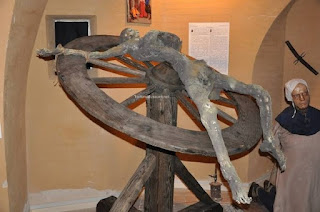Actor Oliver Reed died during the production of ‘Gladiator.’
In the archives of cinematic history, there are moments that stand out not just for their impact on the silver screen, but for the profound loss they represent. One such moment occurred during the production of the epic historical film "Gladiator" in 1999 when the acclaimed British actor Oliver Reed tragically passed away. In this blog post, we reflect on the life and legacy of Oliver Reed, and the impact of his untimely death on the making of "Gladiator."
Oliver Reed was a larger-than-life figure in the world of entertainment, known for his charismatic presence, rugged charm, and formidable talent. With a career spanning over five decades, Reed left an indelible mark on the film industry with his memorable performances in a wide range of roles. From swashbuckling adventures to gritty dramas, he captivated audiences with his raw intensity and commanding presence on screen.
In "Gladiator," Reed was cast in the role of Proximo, a seasoned gladiator trainer who guides the film's protagonist, Maximus, on his journey of vengeance and redemption. It was a role that seemed tailor-made for Reed's unique blend of strength and vulnerability, and his performance added depth and gravitas to the epic tale of ancient Rome.
Tragically, Oliver Reed's life was cut short during the filming of "Gladiator" in Malta. On May 2, 1999, Reed suffered a heart attack while on a break from filming at a local pub. Despite efforts to revive him, he passed away at the age of 61, leaving behind a legacy that would endure long after his untimely death.
The news of Reed's passing sent shockwaves through the film industry and reverberated around the world. For the cast and crew of "Gladiator," his loss was deeply felt, casting a pall of sadness over the production. Director Ridley Scott faced the daunting task of completing the film without one of its key actors, while honoring Reed's memory and contribution to the project.
In the aftermath of Reed's death, the production of "Gladiator" faced numerous challenges. With several of Reed's scenes still to be filmed, Scott was forced to improvise and rework the script to work around his absence. In some instances, CGI technology was used to digitally insert Reed's likeness into scenes where he was needed, while in others, a body double was employed to stand in for the late actor.
Despite the logistical hurdles and emotional toll of Reed's passing, the cast and crew of "Gladiator" remained committed to honoring his memory and completing the film to the best of their abilities. For many involved, it was a labor of love and a tribute to a beloved colleague and friend.
When "Gladiator" was finally released in 2000, it received widespread acclaim from critics and audiences alike, going on to win multiple Academy Awards, including Best Picture and Best Actor for Russell Crowe's portrayal of Maximus. The film's success served as a fitting tribute to Reed's legacy, showcasing his final performance and reminding audiences of his talent and impact on the industry.
In the years since its release, "Gladiator" has become a cinematic classic, beloved by fans around the world for its epic scope, stunning visuals, and powerful storytelling. And while Oliver Reed may no longer be with us, his presence looms large over the film, a reminder of the talent and charisma that he brought to every role he inhabited.
As we remember Oliver Reed and the tragic loss that occurred during the making of "Gladiator," let us not mourn his passing, but celebrate his life and the countless memories he left behind. His legacy lives on in the films he made and the hearts of those who were fortunate enough to know him, ensuring that he will always be remembered as one of cinema's most unfo
rgettable talents.




Comments
Post a Comment